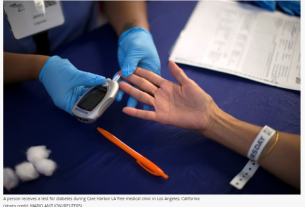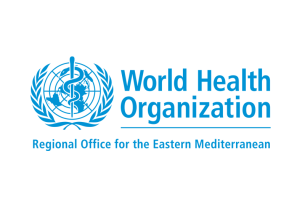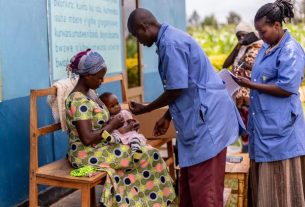What Is PTSD?
Post-Traumatic Stress Disorder (PTSD) is a mental health condition that can develop after experiencing or witnessing a traumatic event. It stems from the body’s natural “fight-or-flight” response but becomes persistent, often long after the immediate threat has passed.
While many recover naturally over time, some individuals continue to experience distressing symptoms. When these symptoms last for more than a month and interfere with daily life, PTSD may be diagnosed.
Who Can Be Affected?
PTSD can affect anyone—children, teens, and adults—regardless of age or background. Common causes include:
- Military combat
- Physical or sexual assault
- Serious accidents
- Natural disasters
- Terrorist attacks
- Childhood abuse or neglect
- Witnessing violence or death
Learning about a traumatic event affecting a loved one can also trigger PTSD. Research from the National Centre for Mental Health (UK), the European Society for Traumatic Stress Studies (ESTSS), and the National Center for PTSD (US) confirms that around 6–8% of people will develop PTSD during their lives. Women are statistically more at risk than men.
Common PTSD Symptoms
Symptoms typically emerge within 3 months of the traumatic event but may appear later. They must persist for over a month and impact daily functioning. Symptoms fall into four main categories:
- Re-experiencing Symptoms
- Flashbacks or intrusive memories
- Nightmares
- Intense emotional or physical distress when reminded of the event
- Avoidance Symptoms
- Avoiding reminders of the trauma
- Steering clear of thoughts, feelings, people, or places connected to the event
- Arousal and Reactivity Symptoms
- Hypervigilance or feeling “on edge”
- Difficulty sleeping or concentrating
- Irritability or anger outbursts
- Risky or reckless behavior
- Cognition and Mood Symptoms
- Persistent negative beliefs or emotions (e.g., guilt, shame, fear)
- Difficulty feeling joy or interest in activities
- Social withdrawal
- Memory difficulties, especially about the traumatic event
In children under 6, symptoms may include bedwetting, speech regression, re-enactment of the trauma during play, or extreme clinginess. Older children may exhibit disruptive or aggressive behavior.
Why Do Some Develop PTSD and Others Don’t?
Not everyone who experiences trauma develops PTSD. Influencing factors include:
Risk Factors:
- Prior trauma, especially in childhood
- Intense fear, helplessness, or horror during the event
- Lack of post-trauma support
- Ongoing stress (e.g., job loss, injury, bereavement)
- Family or personal history of mental illness
Protective (Resilience) Factors:
- Strong social support
- Positive coping mechanisms
- Ability to respond effectively during trauma
- Making peace with one’s response to the event
Diagnosis and Treatment
A qualified mental health professional can assess and diagnose PTSD. Effective treatment includes:
Psychotherapy (Talk Therapy):
- Cognitive Behavioural Therapy (CBT): Helps individuals identify and change negative thinking patterns.
- Exposure Therapy: Gradual exposure to trauma reminders to reduce fear.
- Cognitive Restructuring: Aids in processing guilt or false beliefs about the trauma.
Therapy can occur individually or in groups and may run for 6–12 weeks or longer, depending on the severity of symptoms.
Medications:
In the US, UK, Ireland, and EU, Selective Serotonin Reuptake Inhibitors (SSRIs) such as sertraline and paroxetine are approved and commonly prescribed to help manage PTSD symptoms. Other medications may target sleep disturbances or severe anxiety. A clinician can advise on the most appropriate options based on individual needs.
Support Resources in Ireland, the EU, UK, and US
Ireland
- HSE Mental Health Services: www.hse.ie
- Pieta (Crisis & Suicide Support): Call 1800 247 247 or text HELP to 51444
- Aware (Depression & Anxiety Support): www.aware.ie | Call 1800 80 48 48
United Kingdom
- NHS PTSD Support: www.nhs.uk/mental-health
- Combat Stress (for Veterans): www.combatstress.org.uk | 0800 138 1619
- Mind UK: www.mind.org.uk | Infoline: 0300 123 3393
European Union
- European Society for Traumatic Stress Studies (ESTSS): www.estss.org – resources and trauma networks across Europe
- Local mental health services via national health ministries
United States
- National Center for PTSD: www.ptsd.va.gov
- SAMHSA Helpline: 1-800-662-HELP (4357)
- 988 Suicide & Crisis Lifeline: Call or text 988 or visit 988lifeline.org
Self-Help and Recovery
Recovery from PTSD is possible with time, treatment, and support. Helpful strategies include:
- Following your treatment plan
- Staying physically active and practicing mindfulness
- Maintaining regular routines
- Talking with trusted friends or family
- Setting manageable goals
- Avoiding drugs and alcohol
- Tracking triggers and discussing them with a professional
Supporting a Loved One with PTSD
You can help by:
- Encouraging professional help
- Being patient and listening without judgment
- Learning about PTSD to understand what they’re experiencing
- Offering companionship and positive distractions
- Supporting them in maintaining routines and goals
Research and Clinical Trials
Ongoing PTSD research is conducted across Ireland, the UK, EU, and US. The National Institute for Health and Care Research (NIHR) in the UK, Health Research Board (HRB) in Ireland, Horizon Europe, and NIMH (US) support clinical trials and studies.
To explore participation in research or learn more about treatment innovation:
- EU Clinical Trials Register: www.clinicaltrialsregister.eu
- ClinicalTrials.gov (US): www.clinicaltrials.gov
Conclusion
PTSD is a serious but treatable condition. Early intervention, evidence-based therapy, medication, and social support are key to recovery. Whether you or someone you know is struggling, help is available across multiple countries and systems. Reaching out is the first step toward healing.
For immediate crisis help in your country, call emergency services or one of the national helplines listed above.



